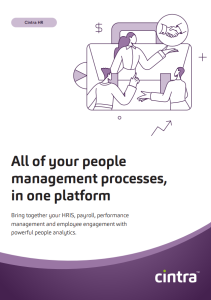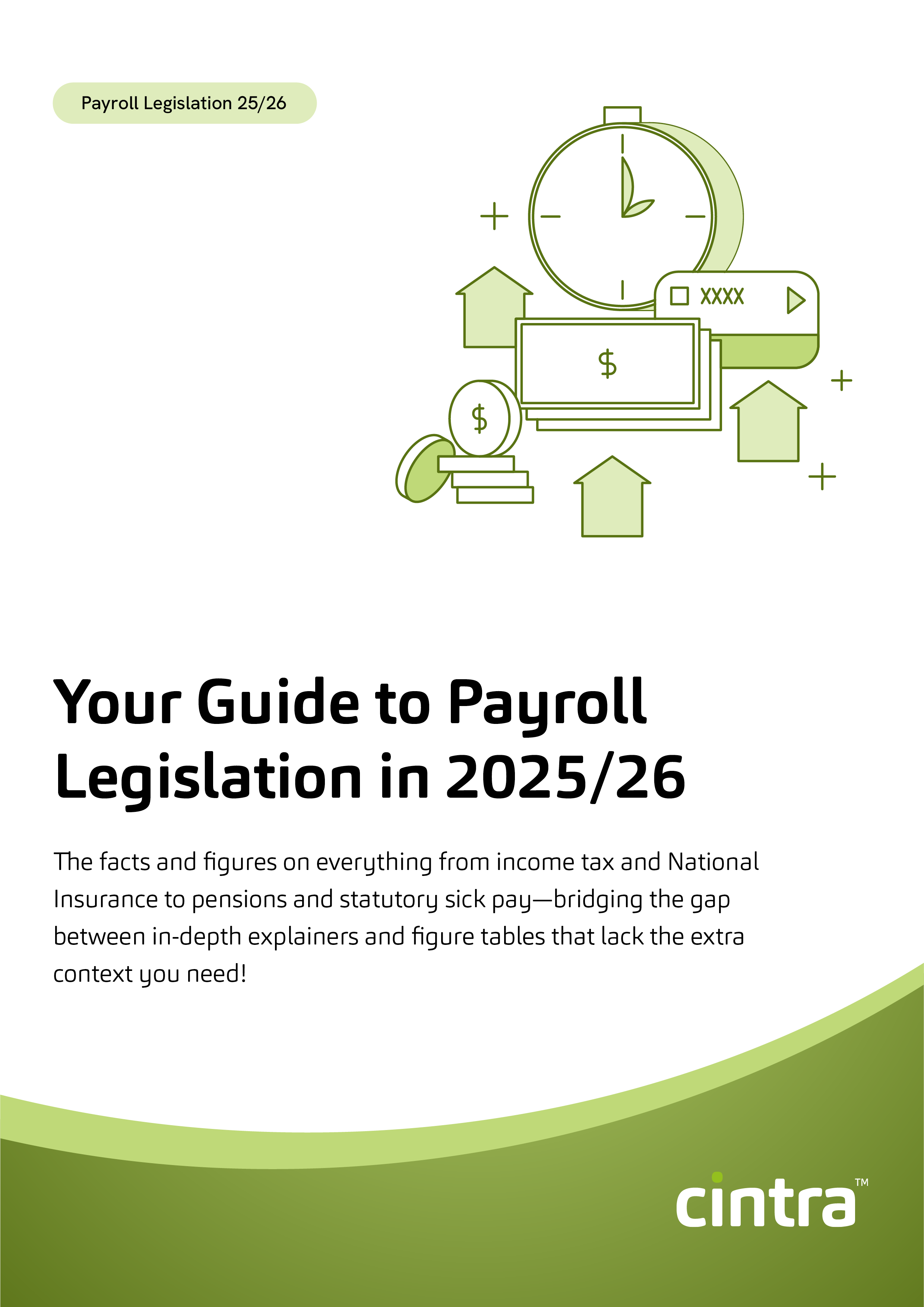Employee experience can feel complex. And because of that, it’s often misunderstood. There are so many different areas of your teams working lives that contribute to their overall employee experience, so know where to look and how to start can feel like a mammoth task.
So, what is employee experience, exactly? Let’s dive into the true definition and the different areas that affect it—as well as the benefits you can see when you get it right.
What is employee experience?
Everything your people do at work, from walking through the door on their very first day, to the daily tasks, projects, and business trips, through to the day you leave, make up your employee experience. But it goes further than that. Employee experience is all about how people feel about their work and their employer. In fact, the IBM Smarter Workforce Institute defines employee experience as, “A set of perceptions that employees have about their experiences at work in response to their interactions with the organisation.”
So, it’s a mindset thing. A feeling thing. A perception thing. And we know that when something is that broad, a lot of factors come into play.
What affects employee experience?
1. Physical work environment
From a nice ergonomic chair to a decent coffee machine, ample communal spaces, a safe, well-lit approach to the building, all the aspects of an employee’s physical space make a difference to how they feel about the workplace.
2. Company culture
You know what this is all about. Culture is the shared beliefs, attitudes and practices of an organisation. The values and philosophy of the organisation guide the behaviour of the employees.
A supportive, inclusive environment that promotes EDI—where everyone feels encouraged and respected—is going to go a long way in making your organisation a positive place to work. Which leads us nicely on to…
3. Quality of work relationships
People like interacting with people. A workplace where people get on and work well together is a place where people flourish. ‘Teamwork makes the dreamwork’ is a cheesy cliché, but it’s true.
4. Tools and technologies
You can’t expect good work from out-dated, inadequate technology. Give your warehouse teams the best forklift you can afford, and your office teams an up to the minute, all-singing, all- dancing desktop with all the capabilities they need.
A workman shouldn’t blame their tools, but it’s hard to do the best job with imperfect gear. And there’s that added bonus: new things make everyone feel that little bit more valued and capable.
5. Compensation and benefit
Wages matter. The right wage is paramount. The same with bonuses, sick pay, maternity or paternity benefits, pensions. Employee benefits are key. Every organisation wants a reputation for paying and remunerating correctly and fairly, because it shows how much you value your people. This is all part and parcel of creating an excellent employee experience.
6. Learning and development
Learning something new gives us all a sense of pride. Whether we’re talking about a kid riding a bike for the first time, or a team member cracking a new process. And once we’ve cracked that something new, we need to know where that’s going to lead.We go to work to earn, but we stay at work, and enjoy that work, and are more productive, when we feel like there’s a path to bigger and better things. And a key place to start is…. Wait for it…
7. Training
Great training programmes and an ethos of sharing knowledge within a company all factor into the employee experience. Training brings positives to an employee’s attitude towards their employer.
- It helps people understand the tasks in hand and develops their skills to do their job better.
- It gives them skills which could help them with promotions within the company.
- It increases job satisfaction. Employees being taught new things feel valued and take more pride in their work.
- This in turn discourages hires from moving on. Training and development opportunities can reduce turnover rates as employees feel the company is invested in them.
- It boosts morale. Regular training provides a sense of purpose, helps achieve goals and increases confidence.
8. Work-life balance
We only have one shot at this life … not only should work be fulfilling, but it also needs to give you enough free time to enjoy other things. Only then can you be happy and healthy, mentally and physically. In times of huge uncertainty, just like the Covid years we’ve just gone through, people now really value work-life balance. It’s critical. Your employees will be happy at work knowing they have time to enjoy family, friends and downtime after hours.
9. Flexible working arrangements
All part of getting that life-work equilibrium. Organisation’s who encourage flexible working hours will attract and retain workers. Lives can be busy and getting to work for fixed time frames can be complicated with many factors in play – family commitments, medical needs, transport difficulties. We’re all juggling! A sympathetic approach to flexible hours and working from other locations can create a huge bump in your organisation’s employee experience.
Employee experience vs employee engagement
Is employee experience the same as employee engagement? No, not really. Employee experience is all about how someone perceives their working life. Employee engagement is all about how invested a person feels in their work, the organisation, and their own professional growth.
We all know that feeling. An engaged employee is focused on their work, happily getting things done, aware of the goals set out for them and striving to realise them.
Employee experience isn’t about how someone interacts with their work, like engagement is, but it’s about their feelings. It’s a more holistic view of all of an employee’s experiences on their work journey. So, get the experience right and the engagement (and productivity!) will follow.
If you want to know more about this aspect of your team’s working life, have a read of our blog on Employee Engagement.
Why is employee experience important?
To be honest, we guess you’ve probably got it by now. Employee experience is everything to a business. That sounds a bit dramatic but sort the employee experience and your organisation will have the potential to be more successful. Alex Edmans determined, “Companies listed in the ‘100 Best Companies to Work For in America’ generated 2.3% to 3.8% higher stock returns per year than their peers…”. Which is great for anyone who needs convincing: the ‘nice fluffy feelings stuff’ is totally borne out by the numbers.
Here’s why:
a. Improved employee engagement
Provide the right set up, get all the factors in place and your employees will be much more engaged with their work and your organisation. Engaged employees are committed, focused and efficient.
b. Better employee wellbeing
Keep employees happy and stress free. Minimise burnout. Look after your teams with a great employee wellbeing strategy. They’re the number one asset in any business after all.
c. Higher productivity and performance
Teams operating at an efficient pace, in a streamlined environment, with all the right tech and tools are going to be more productive.
- Most importantly, keep checking in. It all comes back to those clear channels of communication.
d. Lower employee turnover
It’s expensive and hugely time consuming to advertise, interview, and on-board new staff. If the employee experience is good this won’t be an issue. Engaged, happy employees don’t go looking for new jobs.
e. Improved customer satisfaction
The customer is going to benefit from your smooth operation as much as your employee. An incredible employee experience = an incredible customer experience. And the books will look good too.
f. More innovation and creativity
Your team is happy, driven and has all the potential right there to break new ground. If you have a great employee experience in place, innovation and new thinking follow swiftly.
g. Organisational success and profitability
A good business is like a well-oiled machine. All the processes work, the teams interact and get their work done and fulfil their orders. An organisation that has sussed its employee experience is going to reap the financial rewards with profits increasing as employees exceed customer expectation time and time again.
Where do you go from here?
There we have it… not quite the mountain after all. But if you’re wondering where to start improving employee experience, you’re not alone.
We can help.
You could book in a demo of Cintra HR to see just how much it has to offer you and your organisation. We’re talking:
- 1:1 check ins
- Customisable employee surveys
- Our sentiment, happiness and eNPS analytics
- Real-time feedback
- Full performance management and development features.
In fact, there’s not a lot it can’t do! So have a look at what we can do for you with our HR management software, and book a demo.

Find out more about the features and functionality designed to transform your people processes.


